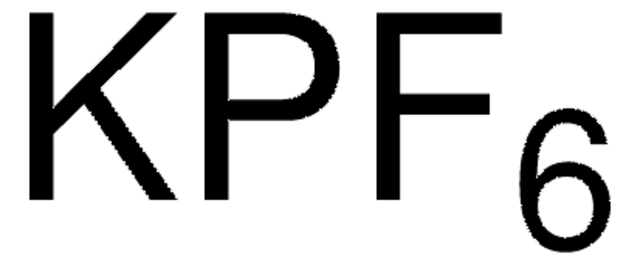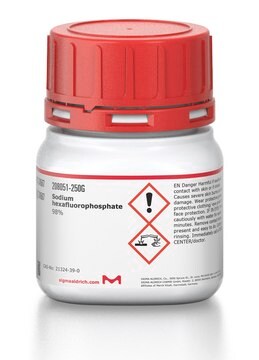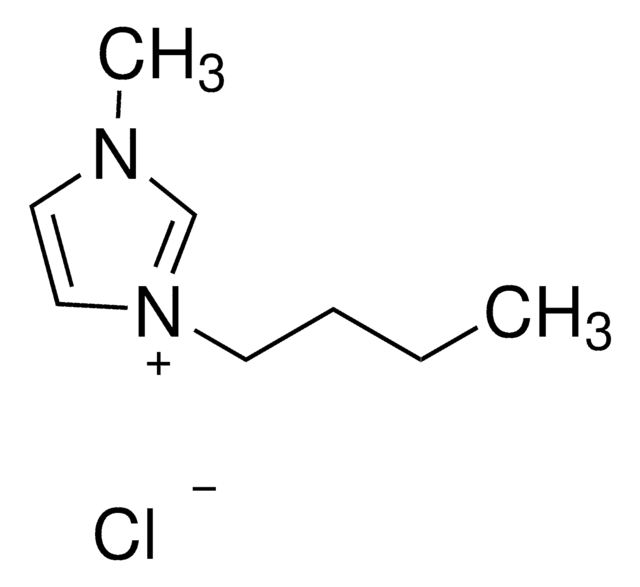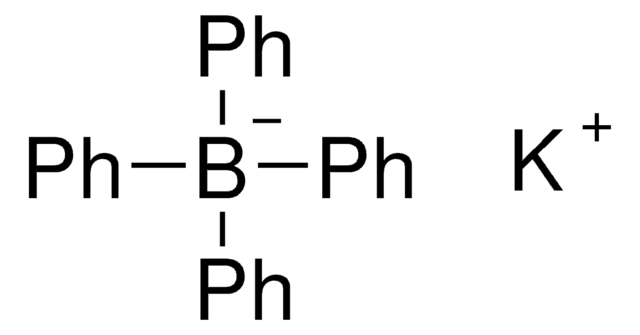278955
Potassium tetrafluoroborate
96%
Synonym(s):
Potassium borofluoride
Sign Into View Organizational & Contract Pricing
All Photos(2)
About This Item
Linear Formula:
KBF4
CAS Number:
Molecular Weight:
125.90
EC Number:
MDL number:
UNSPSC Code:
12352302
PubChem Substance ID:
NACRES:
NA.23
Recommended Products
Quality Level
Assay
96%
form
powder
mp
530 °C (lit.)
density
2.505 g/mL at 25 °C (lit.)
SMILES string
[K+].F[B-](F)(F)F
InChI
1S/BF4.K/c2-1(3,4)5;/q-1;+1
InChI key
AKEBROIVCDHVSD-UHFFFAOYSA-N
Looking for similar products? Visit Product Comparison Guide
Related Categories
General description
Potassium tetrafluoroborate is a white crystalline salt with a low melting point. It is used as a reagent in organic synthesis, high-efficiency electrolyte additive, and in electroplating applications.
Application
Potassium tetrafluoroborate can be used as:
- An additive to perovskite precursor solution for preparing wide bandgap perovskite films for solar cells.
- An electrolyte additive in potassium ion and Li-ion batteries to enhance stability and performance.
- A reagent in the synthesis of bis-N-heterocyclic carbene (NHC) ruthenium complex.
- An electroplating solution to prepare metal coatings and alloys.
Storage Class Code
11 - Combustible Solids
WGK
WGK 1
Flash Point(F)
Not applicable
Flash Point(C)
Not applicable
Personal Protective Equipment
dust mask type N95 (US), Eyeshields, Gloves
Choose from one of the most recent versions:
Already Own This Product?
Find documentation for the products that you have recently purchased in the Document Library.
Customers Also Viewed
Yulia Kaluzhny et al.
Alternatives to laboratory animals : ATLA, 43(2), 101-127 (2015-05-23)
The 7th Amendment to the EU Cosmetics Directive and the EU REACH Regulation have reinforced the need for in vitro ocular test methods. Validated in vitro ocular toxicity tests that can predict the human response to chemicals, cosmetics and other
Our team of scientists has experience in all areas of research including Life Science, Material Science, Chemical Synthesis, Chromatography, Analytical and many others.
Contact Technical Service











